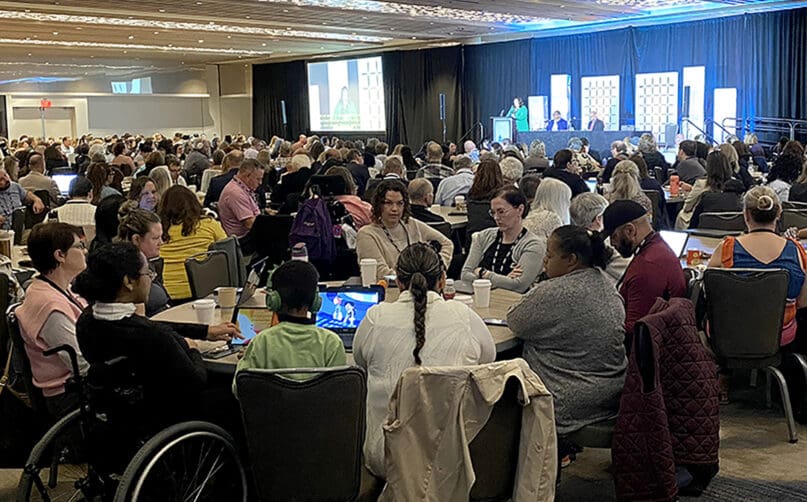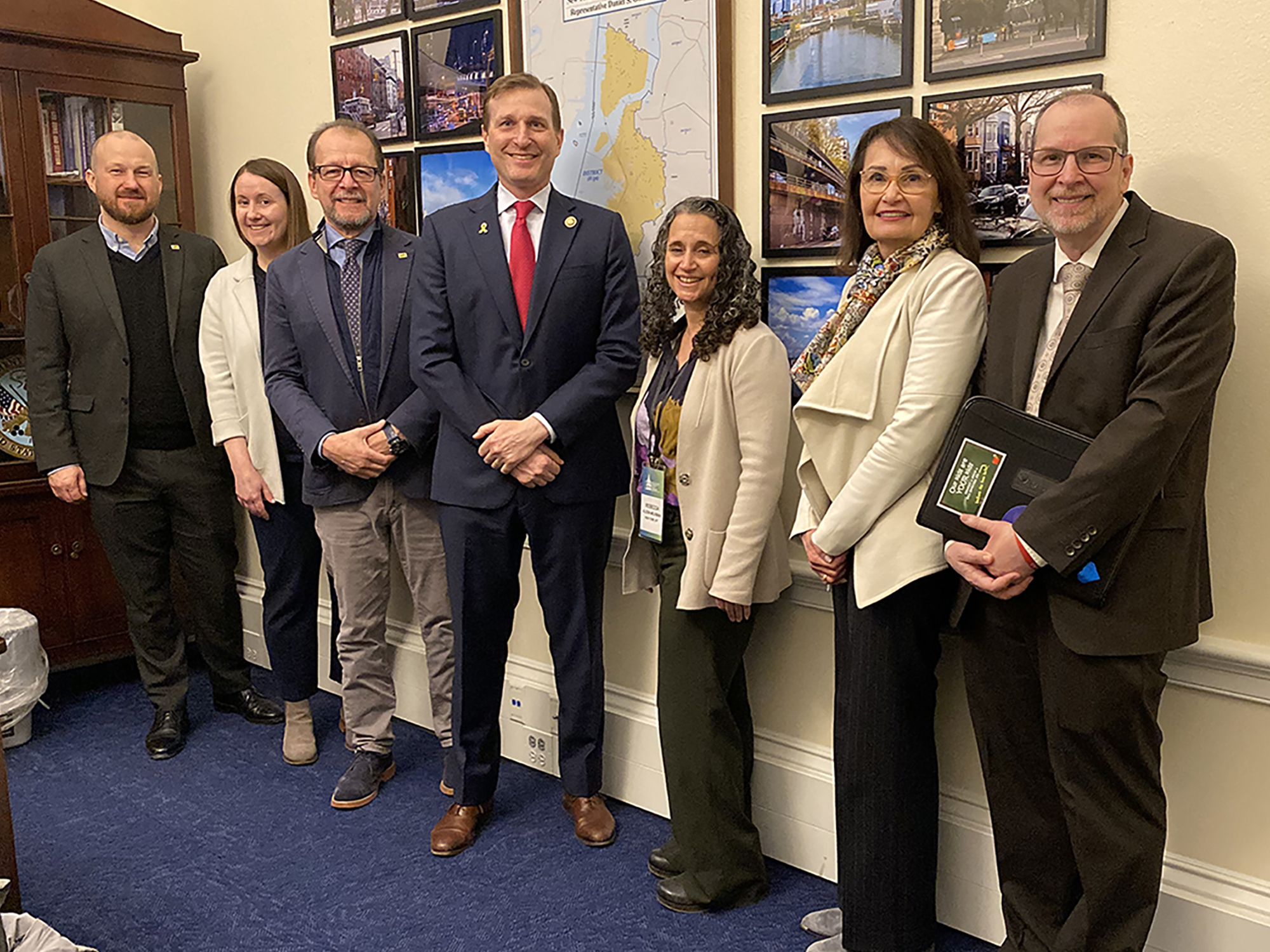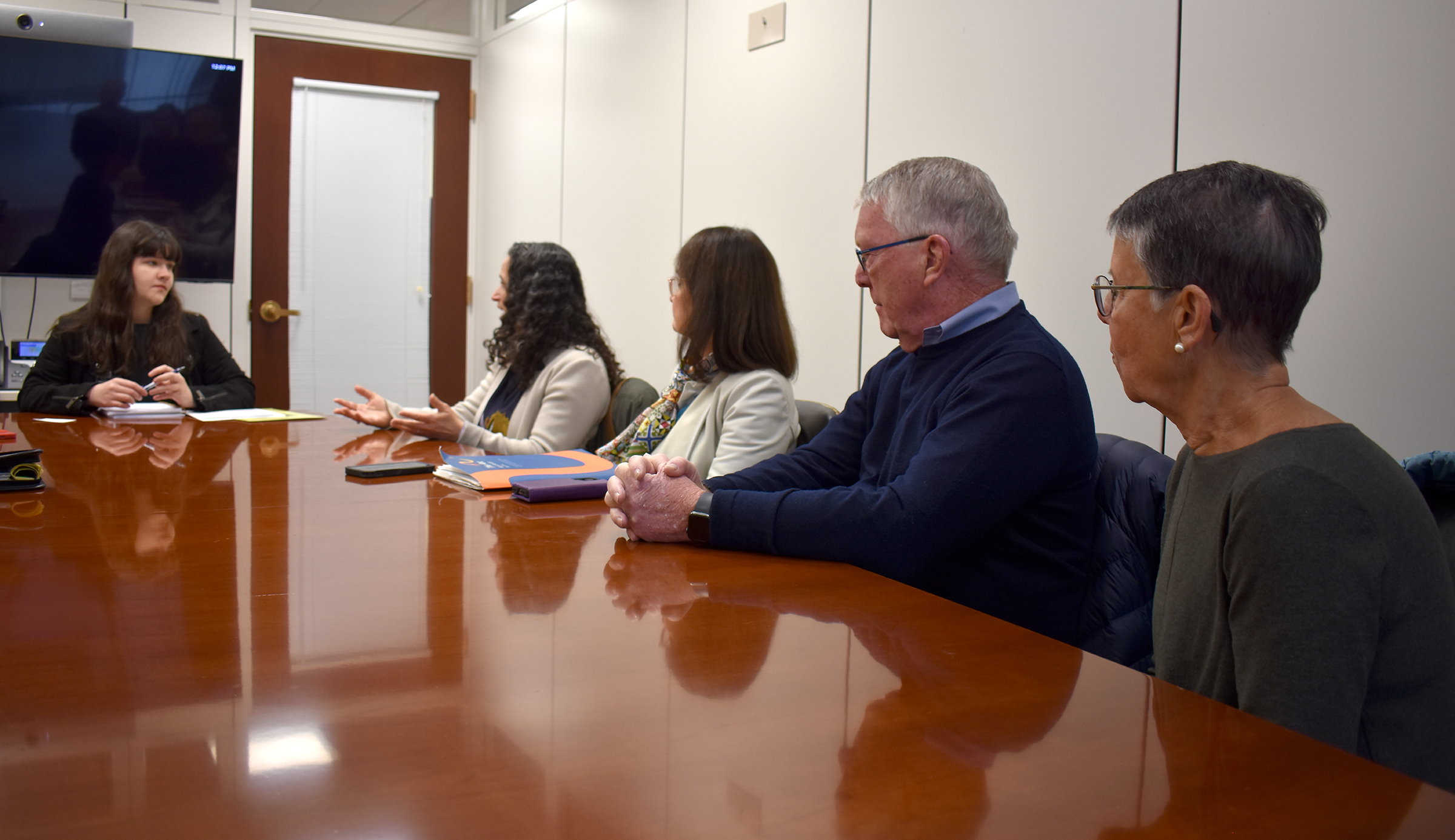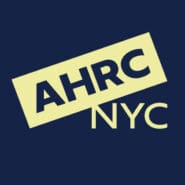Disability Policy Seminar Brings Hundreds of Advocates Together During Crucial Time for Services

AHRC New York City joined hundreds of other disability rights advocates at the Disability Policy Seminar in Washington, D.C. from April 7-9. Threats to Medicaid were at the forefront of presenters’ and attendees’ minds, and AHRC NYC advocates explained the importance of this critical federal program on Capitol Hill in frank conversations with legislators and their staff.
About Medicaid
Medicaid covers nearly 80 million people nationwide. The cost of the program is divided between states and the federal government. Each state pays a different portion, depending on a formula, called FMAP. More than 11 million people with disabilities rely on Medicaid to live independent and healthy lives—in fact, Medicaid is the primary funding source for long-term services and supports (LTSS) and home and community-based services (HCBS).
New York State has one of the most robust Medicaid programs in the country. The state’s Office of People with Developmental Disabilities (OPWDD) relies on Medicaid dollars to pay for:
- HCBS waiver services (i.e., most OPWDD services, such as respite, supported employment, community habilitation, day habilitation, and residential services)
- Children’s waiver services (for children up to 18 who have severe medical needs and a developmental disability);
- Care coordination
- Additional health-related items and services (like Article 16 clinic services)
The impact of cuts to Medicaid is simple: devastating effects for disability service providers, people with disabilities, and their families. Federal cuts force states to fill massive budget holes. States can close these holes by:
- cutting optional benefits (including HCBS)
- cutting provider rates (leading to exacerbated crises like workforce shortages)
- cutting enrollment (waitlists, stricter eligibility, and loss of coverage)
Advocacy for Medicaid, therefore, has never been more important in the face of severe cuts proposed by Congress.
Advocating on Capitol Hill
AHRC NYC met with several legislators and their staff members on Wednesday, April 9. Representative Dan Goldman, who represents lower Manhattan and parts of Brooklyn, including AHRC NYC Headquarters in the Financial District, strongly expressed his support for Medicaid and other disability services, urging advocates to tell their stories to legislators to describe what the human cost of cuts would be.

AHRC NYC leadership and board members met with Rep. Mike Lawler, a key vote in efforts to cut Medicaid. Contact Rep. Lawler to tell him to protect Medicaid to keep disability services in New York State whole.
We also met with staff members from the offices of Senator Chuck Schumer, Senator Kirsten Gillibrand, and Rep. Hakeem Jeffries. We thank all of them for their attention to the threats to Medicaid and disability services in New York State.
Additional Updates from the Seminar

The bipartisan SSI Savings Penalty Elimination Act, introduced in both the House and Senate, would empower millions of people with disabilities to earn and save more money for their future by raising asset limits for individuals and married couples and indexing asset limits to inflation moving forward. More than 400 businesses, faith-based organizations, and advocates have endorsed this bill. Contact your members of Congress to support this legislation to correct a decades-long wrong against people with disabilities.
Workforce reductions at the Department of Education could have harmful effects on special education. USA Today writes that “For years, the Education Department has dispersed federal dollars to states to spend on students with disabilities, conducted national research by analyzing state-to-state data and collected and investigated special education-related civil rights complaints.” Experts at the seminars said recent changes at the DOE would go against these longstanding initiatives.
How You Can Advocate TODAY at Home and In-Person

If there is someone in your life with IDD and other disabilities, it is important that you make personal contact with your elected officials and let them know you are a voting constituent and you have a loved one with IDD who has needs! This must be a nonpartisan effort. All of our elected officials – Democratic, Republican, or Independent – need to understand the needs of the population we serve. That includes state, city, and federal elected officials.
Here’s how you can reach out to your legislator:
- Find your Federal representative
- Find your NYS Assembly member
- Find your NYS Senator
- Contact the Governor’s office
Our national partners at The Arc of the United States have compiled these resources to get you started with advocacy:
Attend a Town Hall Event
Find an event near you by checking your members of Congress’ websites and social media. At the town hall, share why Medicaid matters to you or someone you know and why cuts would be harmful.
Act Now to Protect Medicaid
Send a message to Congress and tell them to protect Medicaid for the millions of people with disabilities who rely on it for health care and more. The Arc’s one-click module is an effective way to get your message across.
Share Your Story
Use the resources from The Arc’s storytelling toolkit to learn how to effectively share your story with elected officials to raise awareness about Medicaid. Personal stories are among the most effective tools we have to influence legislators.
Stay Informed: Important News Items

5 Key Facts About Medicaid Program Integrity – Fraud, Waste, Abuse and Improper Payments
KFF provides research-based information about how Medicaid is one of the most efficient government programs.

Social Security Rolls Back Restrictions on Filing for Benefits by Phone
The New York Times reports that the Social Security Administration reversed a plan to require people to apply for benefits in person. Previously proposed changes to how people can file for disability benefits with Social Security may make it harder to receive quality, accessible information.

Agency for Older Adults and People with Disabilities to be Shuttered Under HHS Cuts
“In fiscal 2022, the ACL provided more than 261 million meals to older adults, assistance such as respite care to more than 1.5 million family caregivers, and independent-living services to nearly 250,000 people with disabilities…”
Become a Member
Advocacy has been at the forefront of our mission for more than 75 years since being founded by families that fought for the creation of services and supports for their children with intellectual and developmental disabilities (IDD) and other disabilities. We continue to fight for greater access and opportunity for the people we support and love!
Sign up for our mailing list
Join AHRC New York City’s mailing list today, to stay informed about the field of services for people with intellectual and other developmental disabilities, legislative news, and upcoming events.

